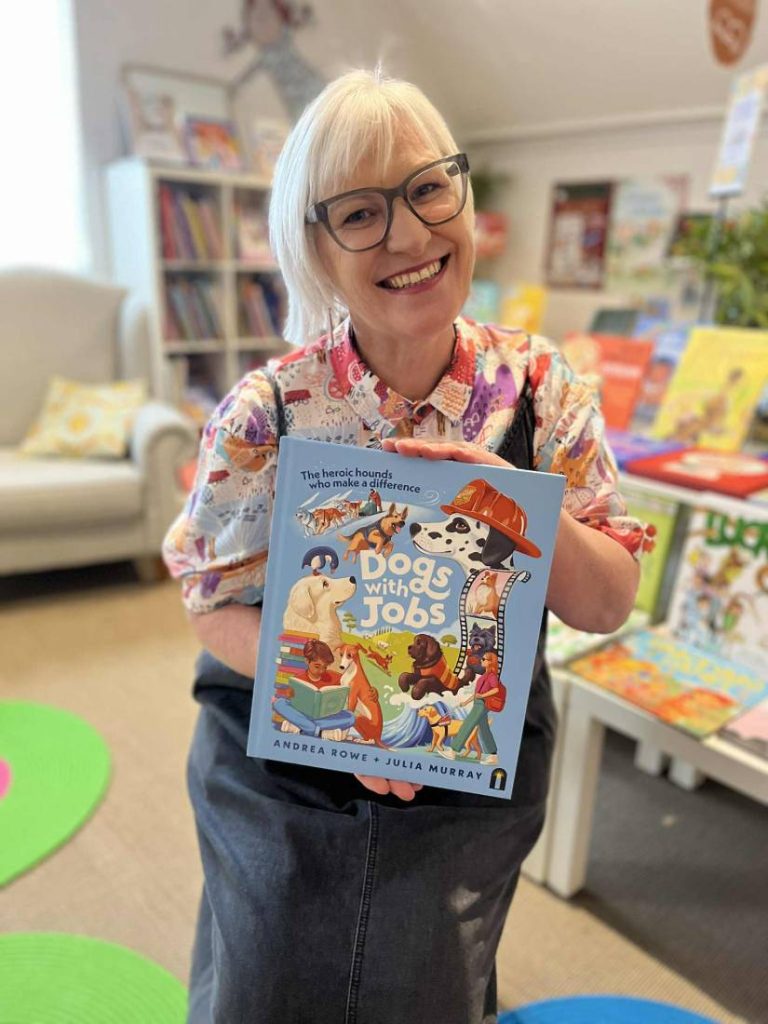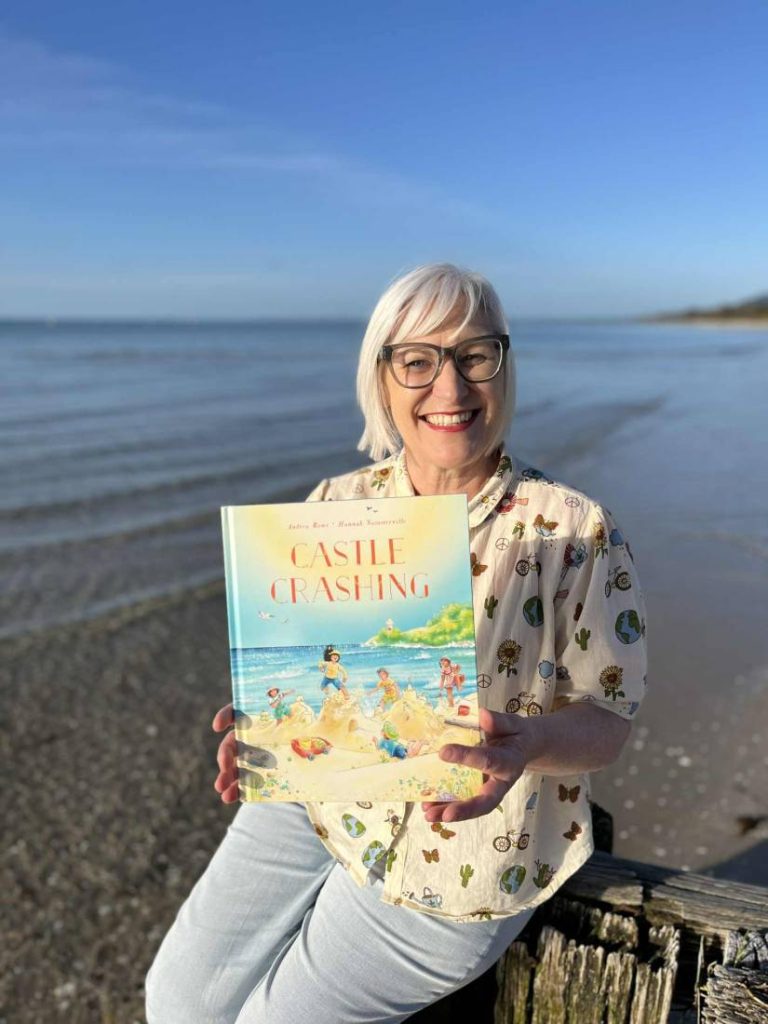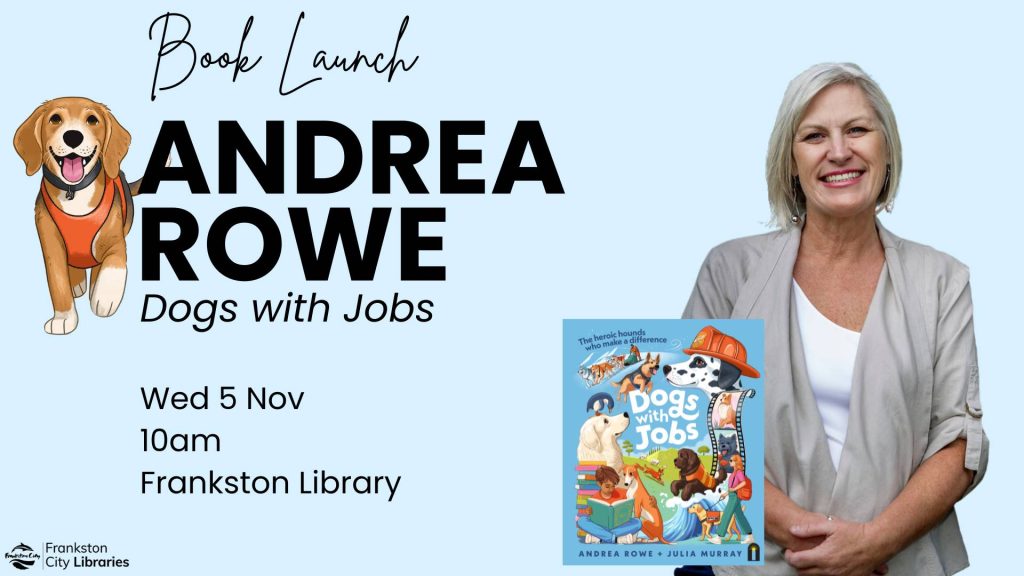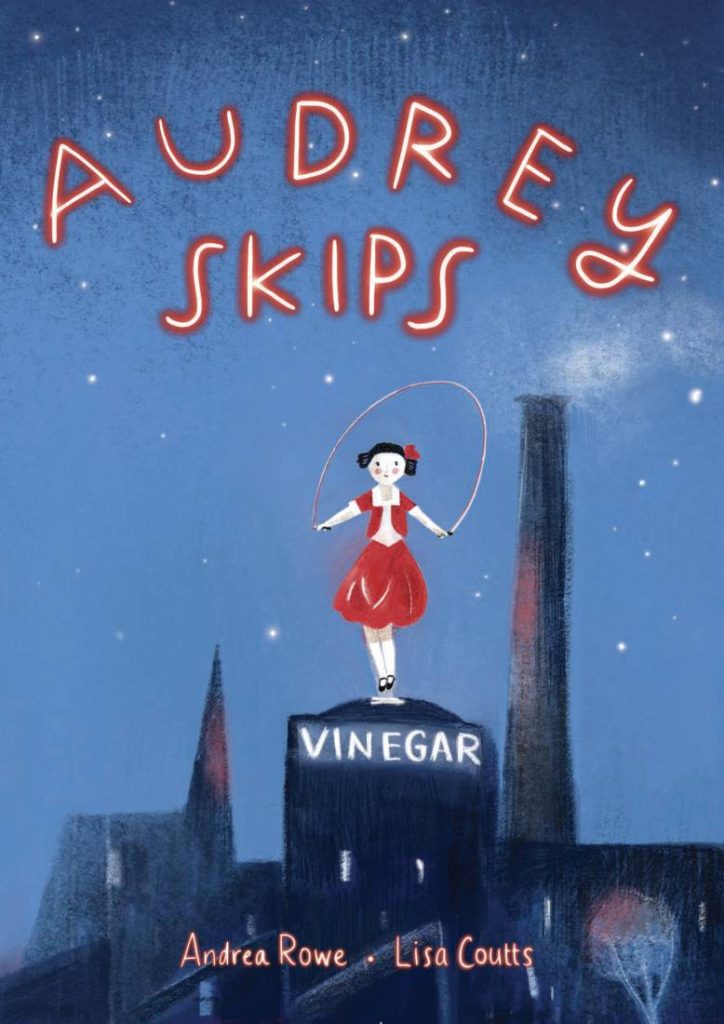
Coronatude is a mindset
COVID has impacted the world and inspired reflections and actions that show the goodness of folks.
During Stage 4 lockdown restriction across Victoria, we’ve witnessed the resilience, connectivity and inspiration of many.
I know so many Victorian’s who have adapted and contributed in inspiring ways.
So why not share their stories?
This Q and A series shares how others have navigated 2020’s impacts and changes, and the attitude and ideas that have sustained their business and wellbeing.
If we’ve learnt anything from these times, it’s that a generous spirit and determined attitude in COVD times can have lasting positive impacts. These are Victorian’s worth meeting and supporting!
Welcome to the Coronatude Chats!
Meet Rebecca Fraser
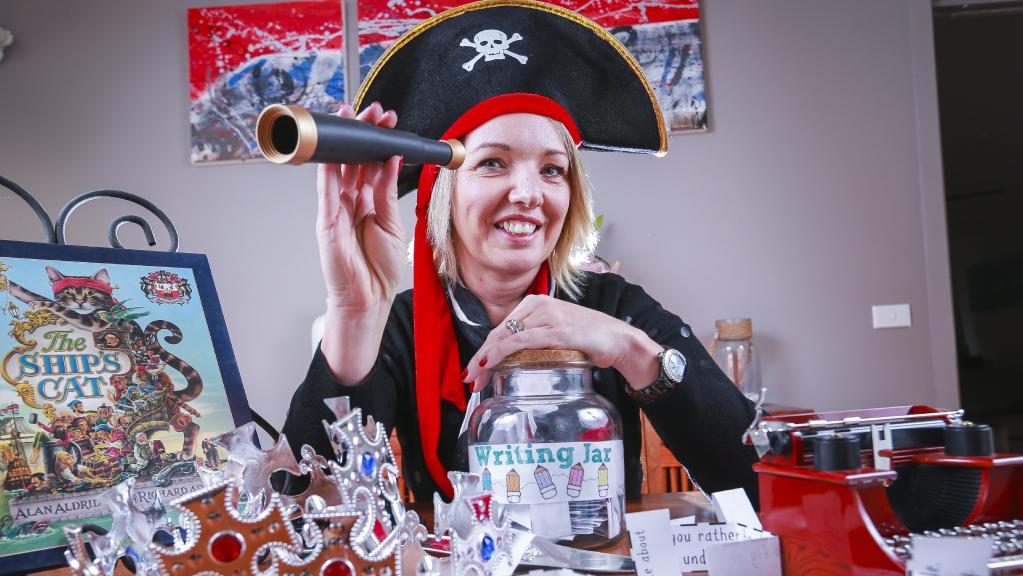
Photo credit: Wayne Taylor, The Leader newspaper.
Tell me about your business Rebecca?
I refer to myself as a ‘writer and moonlighter’ – by day I’m a content writer and copy editor; by night I write fiction for children and adults.
I also operate StoryCraft Creative Writing Workshops for aspiring authors of every age and ability across the Mornington Peninsula and beyond, which evolved from a passion project in late 2017 to a much more sustainable and expanded model over the last few years.
Previously, my workshops for adults and children were conducted in small intimate groups through venues such as libraries and community centres, bookstores and literary festivals, school visits, and face-to-face home schooling groups. I also presented tailored workshops across Melbourne for G.A.T.E.Ways who offer programs in various STEM and arts-based disciplines for gifted and talented children across Australia and overseas.
How did the Coronavirus impact your business?
When COVID-19 struck and restrictions came into place, pretty much every aspect of my professional and creative life took a hit.
With venues and schools unable to accommodate groups, all forthcoming workshops were cancelled until further notice. It was a matter of everyone riding the corona-coaster as best they could, including the publishing industry.
Like many other authors with books due for release this year, my short story collection was rolled into 2021, and sales of existing books showed a decline among wholesalers and retailers around the world.
How did coronavirus impact your own life?
Along with majority of Australians, financial pressure heightened. My husband and I both signed up for Job Keeper which sustained us for a number of months, and adjusted our budget accordingly.
One of the biggest adjustments for our family was home schooling. My school-loving son is in Year 6 and, with several specific learning disabilities, often requires one-on-one assistance to tackle more challenging aspects of the curriculum.
This was difficult to replicate at home, and even more demanding to navigate via online learning. Combined with the physical loss of school community, a wistfulness for old routines, and a pensive outlook for the future, we all adapted as best we could…but it was a lot.
I know we’re not alone in this scenario, and I tip my hat to everyone – students, parents, caregivers, and educational staff – for rising to the occasion with such grit.
It wasn’t all bad though. We laughed a lot too. We played board games. We watched family movies. We baked, we talked, and we walked and walked and walked. I know every square centimetre of my home’s five-kilometre radius intimately! We did odd jobs, and small jobs, and even a few big jobs around the home.
We found ways to navigate and offset the emotional, physical, and financial impacts of coronavirus, willing them to strike a workable equilibrium.
How did your business evolve during COVID times? (What did you offer, how did you adapt, who did you call on to help?)
Sadly, the way my workshops are structured don’t translate well to an online learning space, but watching and participating in the incredible agility and versatility of Zoom and other video communications has been a source of inspiration.
I’ve had lots of time to think about which direction to take StoryCraft in 2021 and beyond. I’ve been exploring alternate ways to deliver and expand on the services and benefits of StoryCraft and am excited about moving towards mentoring, new resources, and education in online sessions or ‘work at your own pace’ styled modules.
With the brakes on work for majority of this year, I’ve been actively seeking out ways to put my skills and resources to use in a manner that might be beneficial to the wider community. With so many suffering from emotional fatigue and anxiety, job loss and impacted businesses, I felt powerless to contribute anything of value, so I looked closer to home.
I’m actively involved with our vibrant literary community, and one thing I kept hearing over and over was how hard it was to maintain focus, productivity, creativity, and hope amid such disruption. People were lonely and angry, feeling disempowered and vulnerable. In uncertain times, writing has traditionally been cathartic for some writers, but coronavirus brought with it a playbook no one had ever read before, and wellbeing (physical, emotional, and mental) was being impacted.
I decided to call on local experts in their fields to contribute their time and expertise, empowering writers with information, advice, strategies and resources they could apply holistically to 2020, or any stage of their lives.
I was overwhelmed by the generosity of Eloise Green, Vinyasa yoga teacher, Danielle Grant, Accredited Exercise Physiologist, Wellness Coach, and owner of Reach Your Peak Personal Training, and Soul Reflection’s Marianne Ellis, Life Coach and Creative Arts Counsellor who went above and beyond with their detailed responses to my interview questions. The results were styled into a ‘Wellbeing for Writers’ series of blog posts, which were well received. The good thing is you don’t need to be a writer to benefit from them – they offer great advice to people everywhere and of every vocation.
You can read them here.
I also instigated a daily writing prompt ‘Confinement Assignment’ for members of the Peninsula Writers’ Club as a way to flex their creative muscles on a daily basis, and encourage connection to creativity and community, even if it was only for a short time every day.
I continued this for a month, and other members graciously volunteered to carry the exercise on in various forms. The writing prompts continued daily for the whole of lockdown (1 and 2), and formed an important part of iso-life for many members.
What has been the hardest thing for you to overcome?
The hardest thing for me has been watching my brave, funny, resilient son do his utmost to remain brave, funny, and resilient when he was feeling none of those things.
There are some things parents are powerless to fix, but I guess that’s always a hard reality of parenthood, global pandemic notwithstanding. (I’ve also never been prouder. My boy is my pandemic hero).
Who has inspired or motivated you to keep going during the pandemic?
Oh, so many! There’s nothing that brings out the best (and worst) in people like a global pandemic, I’ve discovered.
In the early days, when Europe first went into lockdown, I was moved by the many acts of humour and humanity, creativity, and community outreach that were being broadcast to our side of the world.
From virtual TikTok danceathons, to playing tennis rooftop to rooftop, singing en masse from balconies, and grandparents reading stories to their children online, I marvelled at the inventive coping strategies of those in isolation.
Not long after, Australia succumbed to the virus, and our homegrown acts of kindness and community proved to be nothing short of uplifting. In the early days neighbourhoods bore witness to teddy bear hunts and chalk art accompanied by earnest words of inspiration and encouragement scrawled across pavements in technicolour. We saw trees and statues suddenly sporting masks, and enjoyed the sharing of produce and home-baked goods.
Pom poms were placed in letterboxes, and snippets of literary loveliness (I think this was you, Andrea) were left on random trees and signposts for neighbours to absorb as they roamed their 5km bubble.
As restrictions tightened, we doubled down as a community to lift each other up. Virtual check ins became the norm. Quiz nights, family dinners, and board games went online. Birthday presents and bunches of flowers were delivered to doorways – the drive-by drop heralded by the beep of a horn and a window wave when distance allowed. The rise of Spoonville, communities of wooden spoons, decorated by all who cared to participate, and stuck in the ground for all to enjoy.
Such a brilliantly simple, yet expressive and inclusive idea.
So, people have inspired me. Ordinary people who have found themselves in extraordinary circumstances, and have sought innovative ways to elevate others.
Can you share something you’ve learnt about yourself or others during these times that you’d like to continue to explore or offer?
I’ve lived in Victoria for eight years. While I’ve always loved Melbourne, I don’t think I’ve ever felt more Melburnian than I have this year.
Our beloved city…it felt like our heartbeat was slowing with every passing week. I think I cried four times during the lockdown. Once was when the beaches were closed, once was when my son was having a particularly rough day.
I cried when it was announced students could return to school, and I cried the day before the AFL final.
While I’m not a follower of football, I know I’m in the minority. I also appreciate what an important part of Melbourne’s psyche it embodies, and what a loss it was to not have games at home this year.
This particular morning, I was driving through our neighbourhood, and noticed one family had created a to-scale Spoonville version of the MCG on their nature strip, complete with spoon spectators, sponsor advertising, mini goalposts, even contrasting shades of lawn on the ‘ground’.
It was spectacular.
I pulled over to admire it, and felt deeply moved by this display of steadfast celebration.
I shed a tear for Melbourne, for all that she means, all that she stands for, all that she’s lost, and all her people are dealing with. But it was also a moment of revelation and joy.
Melbourne’s heartbeat may have slowed, but it certainly hadn’t stopped. It was beating as strong as ever in its sleep.
How can folk connect with you?
Website: Writing and moonlighting
Facebook: Writingandmoonlighting
Instagram: @becksmuse
LinkedIn: Rebecca Fraser Writer
Thanks for sharing your story Rebecca. You’ve added to the narrative of community connections during COVID times!
Keep that Coronatude going strong out there. .
If you know a regional Victorian story worth sharing, I’d love to hear from you.
Cheers,
Andrea




